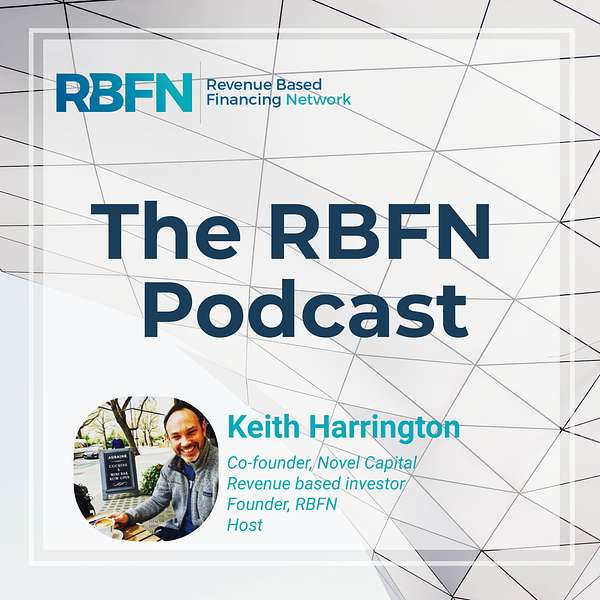
RBFN Podcast
Learn from the best alternative capital investors in the world. Revenue-based financing investor and thought leader, Keith Harrington, conducts in-depth interviews with other investors who are disrupting the capital markets by offering alternative capital solutions to the traditional VC equity fundraising path. Successful entrepreneurs are demanding more innovation from investors, and Keith’s goal is to bring these investors together to share what they’ve learned, why it’s important to them, and how they apply it to what they do. The Revenue-Based Financing Network Podcast aims to quickly expand this growing industry to support more entrepreneurs and build awareness around the revenue-based financing ecosystem. Learn more and join our community at www.rbfn.org.
RBFN Podcast
#33 - Greatest Hits: Making Credit Sexy with Mike Luebbers, Chief Credit Officer of Novel Capital
We make credit sexy(ish) this week with Mike Luebbers, the Chief Credit Officer of Novel Capital. We brought Mike onto the team at Novel after we worked closely with him as he led the underwriting on the credit facility we raised. We learned so much in that process that he was our first call when we decided it was time to hire a Chief Credit Officer. Mike is a world-class credit investor, having been Chief Credit Officer at both Bridge Bank and Lighter Capital. In this conversation, which I pulled from the archives, Mike shares his unique point of view on how to do RBF deals (having done hundreds in his career). Mike also shares some great tips for folks to learn how to think about alternative capital and RBF investing, how his experience in the tech sector inspired him to leverage tech for efficiency and creativity in underwriting, and the key metrics Mike looks at when thinking about an RBF deal.
Key Takeaways
[4:00] Mike’s career trajectory from commercial tech banking to RBF.
[5:48] The difference between the sales and credit guy.
[6:05] Mike’s duties as the Chief Credit Officer role at Novel Capital.
[8:31] How Mike made the shift from bank to fintech startup.
[10:17] Where Mike sees RBF fitting in the landscape both with customers and companies.
[12:01] The key factors of predictability of revenue and customer base in determining the appropriate amount of RBF to provide.
[16:08] How RBF fits with the entrepreneur’s growth goals.
[19:52] The difference between Merchant Cash Advance and the typical RBF.
[22:18] The other key metrics Mike looks at when thinking about an RBF deal. What are the bare minimum criteria that he thinks are important?
[27:41] Deal killers in RBF and when it’s not a “no”, but a “not yet”.
[30:30] How do you know when to attribute it to luck vs. good underwriting?
[34:02] Q&A: What role does Mike see RBF playing post-pandemic recovery of non-software small businesses?
[44:02] Companies that offer a profit share rather than a revenue share. Indie.vc, Earnest Capital.
Thanks to our sponsor for this episode:
Husch Blackwell - Husch is my go-to law firm for everything related to raising capital, building companies, deploying capital, and everything in between. The partner I work with, Ed Wilson, understands the alternative capital landscape and I can’t recommend him highly enough.
Resources:
RBF Network
Keith’s Twitter
Guest:
Mike: LinkedIn | Novel Capital